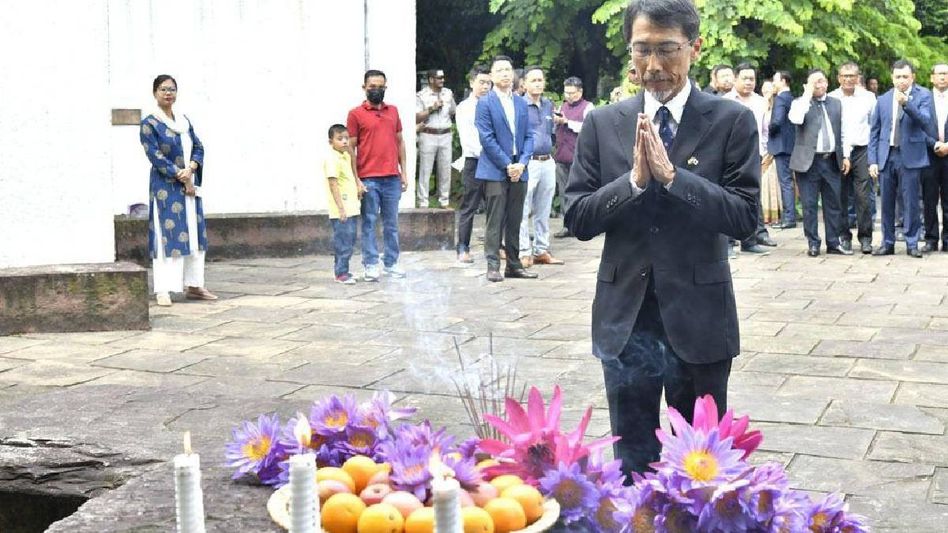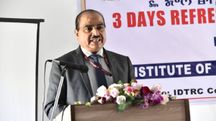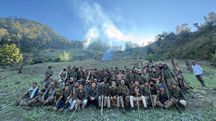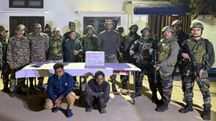Imphal Peace Museum marks 6th Anniversary and Hiroshima-Nagasaki Day with tributes and renewed call for peace
The Imphal Peace Museum on Saturday marked its 6th anniversary alongside the global observance of Hiroshima and Nagasaki Day, with a solemn programme that underscored the enduring importance of peace, reconciliation, and cross-cultural friendship.

- The museum's 6th anniversary coincided with Hiroshima and Nagasaki Day
- Event highlighted peace, reconciliation, and cross-cultural friendship
- Ambassador Ono paid tribute to war victims and stressed peace
The Imphal Peace Museum on Saturday marked its 6th anniversary alongside the global observance of Hiroshima and Nagasaki Day, with a solemn programme that underscored the enduring importance of peace, reconciliation, and cross-cultural friendship.
Organised in collaboration with the Nippon Foundation, the Sasakawa Peace Foundation, and the Manipur Tourism Forum, the commemorative event brought together dignitaries from Japan and India, including His Excellency Ono Keiichi, Ambassador of Japan to India, Dr. Puneet Kumar Goel, Chief Secretary, Government of Manipur, and Prof. W. Chandbabu Singh, Vice-Chancellor of Dhanamanjuri University.
In his keynote address, Ambassador Ono Keiichi reflected on the harrowing battles of the Imphal campaign during World War II and the heavy toll they took on civilians and soldiers alike. Quoting, “War takes everything and gives nothing in return,” he paid tribute to the victims at the India Peace Memorial and expressed Japan’s deep gratitude to the people of Manipur for their generosity and support. He reaffirmed Japan’s commitment to repatriating the remains of Japanese soldiers when conditions permit, and lauded India’s long-standing tradition of honouring Hiroshima and Nagasaki victims with moments of silence in Parliament.
Highlighting the Imphal Peace Museum as a beacon of reconciliation, he noted the significance of the “Heiwa” (Peace) calligraphy by the late Prime Minister Shinzo Abe displayed in the museum, symbolising a shared vision for a free and open Indo-Pacific. He also stressed Japan’s continued partnership in India’s development, particularly in the Northeast, through infrastructure, economic, and cultural initiatives.
Guest of Honour Dr. Puneet Kumar Goel called the museum a “living testament to transformation”, noting how a site once marked by intense wartime conflict now stands as a space of reflection and learning. He described the inauguration of the Harmony House and a special exhibition of defence artefacts from Japan as new milestones in remembrance and humanity.
Reflecting on the atomic bombings nearly 80 years ago, Dr. Goel acknowledged the devastating loss of over 200,000 lives but emphasised the resilience, forgiveness, and moral courage of the survivors. He urged all to uphold values of compassion, unity, and mutual respect in building a peaceful future.
The day’s programme included floral tributes to war heroes, a symbolic release of small fish into the museum’s pond to represent harmony with nature, and a two-minute silence in memory of the departed. Guests also participated in the formal acceptance of books under the READ Project and toured the museum’s exhibits.
The event closed with a renewed pledge from both Indian and Japanese representatives to preserve the museum’s legacy and strengthen the bonds of friendship between the two nations.
Copyright©2025 Living Media India Limited. For reprint rights: Syndications Today









